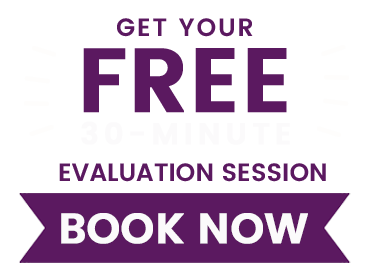Let's face it, changing habits is tough. Whether it's that extra cup of coffee we know we don't need or the snooze button we hit one too many times. But what if I told you that these habits, seemingly insignificant, are the invisible architects of our daily lives? They're like the background music in a movie – you don't always notice them, but they set the entire tone. What if changing a single habit could change your life? Here lies the paradox: the smallest, most routine parts of our day hold the key to transformative change. This journey into the realm of habits is not just about altering actions; it's about reshaping your life. Understanding and modifying habits is not a fancy self-improvement fad; it's a fundamental stride toward the life we yearn for. This is the story of how changing habits isn't just a choice but a defining moment in shaping your destiny.
Statistics whisper a startling truth: approximately 43% of our daily activities are habits running on autopilot. That's nearly half of our life! Our habits are the architects of your well-being. A positive habit is like a seed that, when nurtured, blossoms into a tree of good health, happiness, and success. It's the small habits, like choosing an apple over a candy bar, or a morning jog over an extra hour of sleep, that compound over time to script your story of triumph.
Now, why is changing a habit akin to climbing Mount Everest in flip-flops? Well, it boils down to our beliefs and perceptions, the unseen puppeteers of our actions. Our habits are deeply intertwined with our beliefs and perceptions. It's a two-way street. Our habits are influenced by what we believe, and what we believe is often a result of our habits. Imagine this scenario: you believe that morning exercise is beneficial. This belief nudges you out of bed and into your running shoes. Before you know it, you've developed a habit of morning runs. Conversely, if you believe that exercise is a chore, that snooze button becomes your best friend. See the connection?
And here's the twist – many of us are blissfully unaware of our habits and their long-term effects. We chase short-term gratification, oblivious to the chains we're forging link by link. Take coffee, for instance. It starts as a morning ritual to battle the grogginess of a demanding job. Fast forward, the job changes, but the coffee habit lingers, unquestioned. Or smoking, begun in the rebellious haze of youth, stubbornly persists into adulthood, its once alluring aura long faded.
Changing these ingrained patterns can seem daunting. We're up against decision fatigue, the comfort of familiarity, and stress as a coping mechanism, even if it's not good for us. Fear of the unknown plays a big role too. Venturing out of our comfort zone can feel like stepping onto a stage in front of a thousand people wearing nothing but your socks. And let's not forget emotional attachments. Sometimes we hold onto habits like a child holds onto a security blanket. It's familiar, it's comforting, and it's tough to let go. But, fear not! The mountain of habit change, though steep, is scalable.
So, how do you change habits for the better? Habits are powerful, but they're not set in stone. The secret sauce to change a habit is a blend of awareness, determination, and a dash of humor. Every habit is a three-act play: Trigger, Routine, Reward – collectively known as The Habit Loop. The cue triggers the behavior, the routine is the action you take, and the reward is what keeps you coming back for more, that sweet cherry on top, the benefit you gain. Understanding this trio is your first step towards transformation.
How do we swap the old, dusty script for a fresh, vibrant one? It starts with a decision, a conscious choice to embrace change. It’s like deciding to repaint your life’s canvas with brighter, more vibrant colors. First, Identify the Trigger. It's like playing detective in your own life. If you're smoking to cope with stress, merely focusing on health benefits won't cut it. You need to address the stress itself.
Once you've got the Trigger in your crosshairs, you have two choices: replace the Routine with a healthier alternative or eliminate the source of the Trigger. It's like choosing between redirecting a river or stopping the rain – both are effective in their own right. If stress leads you to snack, try a stress-busting walk instead or look for a better-suited job.
Next, build an accountability system. Don't underestimate the power of your environment and support systems. Share your journey with friends or join support groups. Alter your environment to support your new habits – make the good ones easy and the bad ones hard. Keep fruits visible for healthy snacking and hide junk food.
Finally, set realistic goals and a clear plan of action. Changing habits isn't a sprint; it's a marathon with scenic views and occasional pit stops. Be patient with yourself. Every small victory is a step towards a bigger transformation. Remember, consistency is key. It's like watering a plant; you can't water it once and expect it to thrive. Nurture your new habit with regular practice, and watch as it grows stronger, becoming a natural part of your daily routine.
Just as a river shapes its banks, our habits carve the path of our lives. The habits you cling to today dictate the person you will become tomorrow. This isn't just about self-improvement; it's about the essence of who you are and who you have the potential to be. Don't wait for a life-altering moment to change a bad habit. The best time is now; before the habits harden into unbreakable chains. The transformation of your habits is not just about doing different things; it's about seeing things differently. It's about rewriting the script of your life, one habit at a time.
Moreover, our habits are a microcosm of society's patterns. When you reshape your habits, you don't just alter your own lives; you radiate inspiration, influencing those around you and you contribute to a collective elevation of well-being and purpose. By changing our habits, we contribute to a collective transformation, fostering a world where mindfulness, health, and productivity are not just ideals, but realities lived daily.
Don't just read about changing habits; be the change. Take action now! Identify one habit that you want to transform and take the first step today. Whether it's setting the alarm for an early morning jog or choosing a healthy snack over junk food, begin your journey of transformation now.



